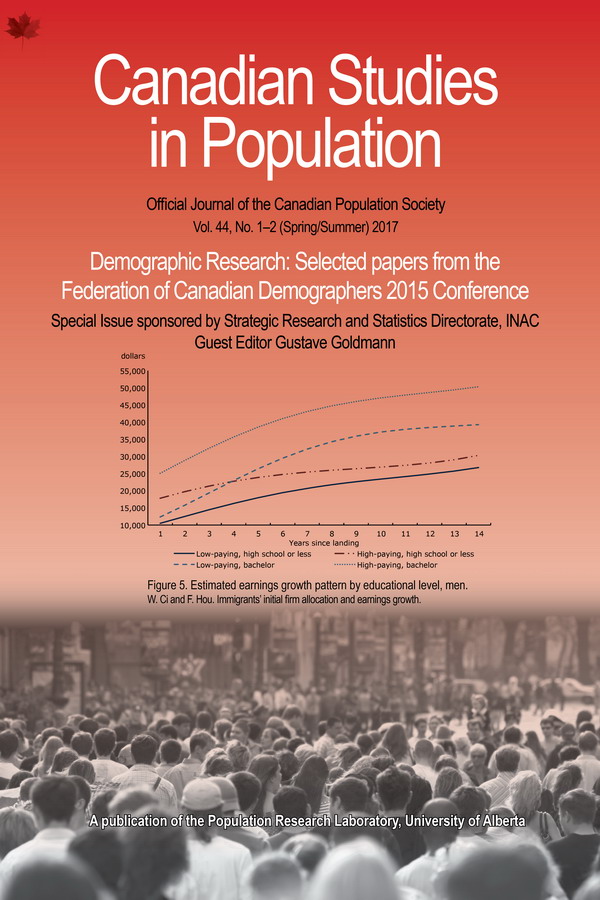Individual and community-level determinants of retention of Anglophone and Francophone immigrants across Canada
DOI:
https://doi.org/10.25336/P6831WAbstract
This paper uses Cox Proportional Hazards Models, the Longitudinal Immigration Database, and Harmonized Census Data files to investigate the individual and community determinants of retention of Anglophone and Francophone immigrants in Canada among 1990, 1995, 2000 and 2005 landing cohorts in the first five years after landing. We focus on both the official language capacity of immigrants and the linguistic composition of the communities in which they settle. We find that Official Language Minority Communities (OLMCs) successfully retained Francophone immigrants better than non-OLMCs outside of Quebec. We also find that most cohorts of Anglophone immigrants are more likely to exit Quebec if they started out in an OLMC than if they did not.Cette étude utilise des modèles à risque proportionnel de Cox, la base de données longitudinales sur l’immigration, des fichiers de données harmonisés des recensements de la population afin d’examiner les déterminants au niveau individuel et communautaire sur la rétention à l’arrivée au pays des cohortes admises en 1990, 1995, 2000 et 2005 au cours des cinq premières années après leur établissement. L’accent de l’étude porte sur la capacité linguistique dans les deux langues officielles des nouveaux arrivants et la composition linguistique des communautés d’accueil. L’étude révèle que les communautés de langue officielle en situation minoritaire (CLOSM) ont plus de succès à maintenir les immigrants francophones que les communautés de langue officielle en situation majoritaire hors-Québec. L’étude révèle aussi que la plupart des cohortes anglophones sont plus susceptible de quitter le Québec si initialement établies dans une CLOSM.
Downloads
Published
Issue
Section
License
Copyright (c) 2019 Michael Haan, Jake Arbuckle, Elena Prokopenko

This work is licensed under a Creative Commons Attribution 4.0 International License.
The following copyright statement applies to content published in Volumes 1 - 45 of Canadian Studies in Population.
Authors retain copyright and grant the journal right of first publication with the work simultaneously licensed under a Creative Commons Attribution License that allows others to share the work with an acknowledgement of the work's authorship and initial publication in this journal.
Authors are able to enter into separate, additional contractual arrangements for the non-exclusive distribution of the journal's published version of the work (e.g., post it to an institutional repository or publish it in a book), with an acknowledgement of its initial publication in this journal.
Authors are permitted and encouraged to post their work online (e.g., in institutional repositories or on their website) prior to and during the submission process, as it can lead to productive exchanges, as well as earlier and greater citation of published work (See The Effect of Open Access).



